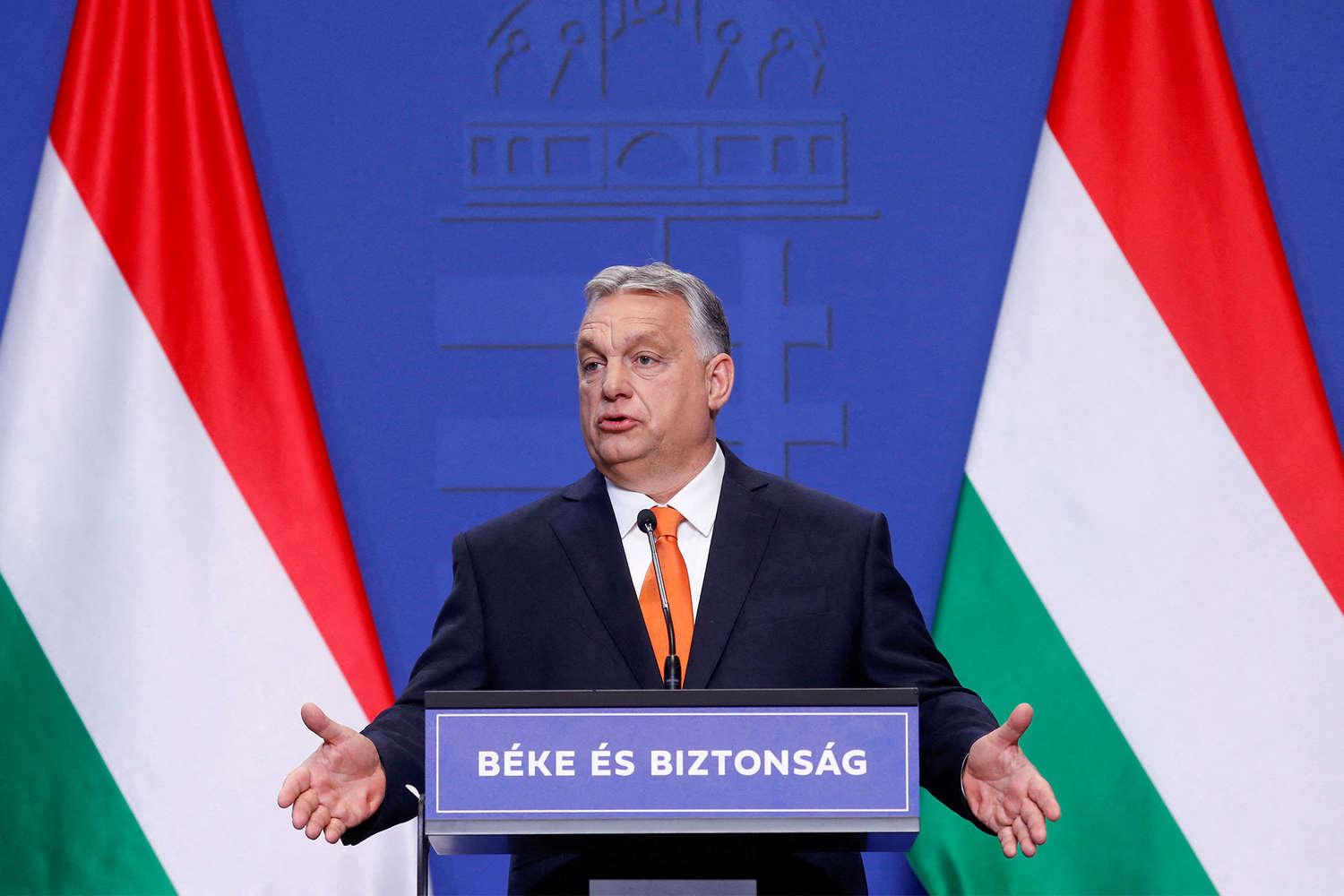Hungary's controversial EU presidency Orbán's puzzle for Europe
As Caliber.Az previously reported, from July 2024, Hungary will rotate the position of the presidency of the European Council for 6 months. The motto of Budapest's presidency will be "Let's make Europe great again". As for the logo, the famous Rubik's cube was chosen, with the implication of applying strategic thinking and creativity to the management of the European continent (similar to the use of these categories to solve the Rubik's puzzle).
Many observers will probably see the Budapest logo choice as Hungarian Prime Minister Viktor Orbán's presentation of today's Europe as a kind of puzzle that requires a great deal of ingenuity to solve. In light of this, the Hungarian Minister for EU Affairs Janos Boka, announcing Budapest's assumption of the EU leadership in the most difficult conditions of geopolitical competition, the Russian-Ukrainian war, migration, etc., drew attention to Hungary's plans to ensure a "smooth institutional transition" to concretely address pressing issues of European life through open and honest dialogue. Given the country's intention to promote unity and diversity within the EU.
Surely, this position of Budapest does not surprise anyone. It is another matter that Orbán's independent view in many areas is openly rejected by the main political leaders of Europe. In light of this, it should be recalled that more than a year ago, a draft resolution prepared by a number of parties in the European Parliament stated "Hungary's deviation from the values of the EU", because of which the authors of the document advocated against Budapest's occupation of the presidency of the EU Council. At the beginning of 2024, the main political groups of the European Parliament called for Hungary to be stripped of its voting rights in the EU Council. However, in dissonance with the chorus of applause, Slovak Prime Minister Robert Fico announced that he would veto any decisions aimed at restricting Hungary's rights in the EU.
The real reason for the anti-Hungarian demarche by the European neighbours, the country's deputy prime minister Zoltan Kovacs, identified the Euro leaders' non-rejection of Hungary's "peaceful position" on the Russian-Ukrainian war, as well as their negative reaction to Budapest's vote against imposing anti-Russian sanctions on Russia.
It is quite symbolic that just a couple of days ago, Viktor Orbán, who made a state visit to Germany, was deprived of a reception with military honours, which always accompanies trips of this level by heads of state. There was also no joint press conference on the results of the talks.
But Hungary does not get out of its own way, continuing, for example, to openly oppose the appointment of Ursula von der Leyen as head of the European Commission, although the names of candidates for the posts of head of the European Council and the EU's chief diplomat are not objectionable to Budapest. Orban called von der Leyen a "servant" of Manfred Weber, the leader of the European People's Party (EPP), the largest faction of the European Parliament, who is one of the persons who shape "the erroneous policy of Brussels" with the help of the European Parliament (where a pro-war lobby has gathered to push Europe towards military action). At the same time, Viktor Orbán equated the EPP leaders with Hungrophobes who want to harm Hungary, criticising their policy of bringing the Respect and Freedom Party, led by Péter Magyar, who is in opposition to the current Hungarian authorities, into the caucus.

In reflection of the results of these elections, Orbán expressed dissatisfaction with another aspect of what is happening around Hungary. As he put it, the majority of seats in the European Parliament (on Hungary's side) went to the FIDES party, the "party of peace", which did not please Brussels. Which, a few days after the vote, imposed a €200 million fine (plus daily payments of €1 million) on Budapest through the EU Court of Justice in Luxembourg for refusing to implement earlier court rulings on the migrant issue. The Hungarian government, however, refused to give in to "financial blackmail" in the face of the "contradiction of the judgement with European law". And an inter-ministerial working group set up in the country is currently developing "adequate measures" against Brussels' anti-Hungarian moves.
Thus, as can be seen from the above-mentioned facts, the policy of the leading countries in the European Union has a pronounced anti-Budapest character. In light of this, a number of experts express confidence in the strengthening of this line by Brussels due to the unambiguous position openly declared by Hungary in recent days on the issue of the direction of the "European train towards war". According to Orbán, by pressing the stop-cock, he will stop the movement of the train so that "Hungarians can get off it". Therefore, should the NATO military mission embark on action in Ukraine, Budapest will not participate in any way in the envisaged process.
In this way, the positions of the parties have been voiced. And, according to analysts, the outcome of Viktor Orbán's upcoming talks with Italian Prime Minister Giorgi Meloni will be significant in the development of the situation.
In any case, it is unlikely to expect the Hungarian government to change its course towards Brussels. Nor the other way around.
So all is not calm in the European kingdom, especially in the run-up to the final agreement of the EU leaders on the candidates for the main euro positions, which is expected in a few days.
By Teymur Atayev
The views and opinions expressed by guest columnists in their op-eds may differ from and do not necessarily reflect the views of the editorial staff.








